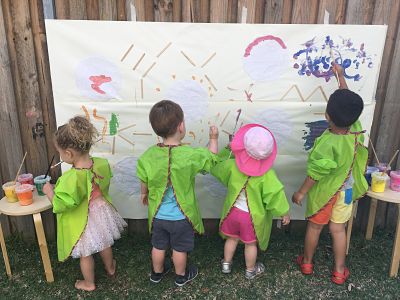The power of creative play
Creativity is a subject very close to our hearts here at Big Wild Imagination but it can be a word that scares people (especially grown-ups!). Some people believe that creativity is an inborn talent and you either have it or you don't. But everyone is creative! It is our ability to problem solve, to imagine, to dream. As we grow older a lot of people lose confidence in their creativity and fall into the trap of thinking that if they can’t paint, or draw then they are not creative. But creativity is a skill and one that can be nurtured, developed and improved.
Creativity isn't just about artistic talent, it is essential for almost all areas of our life including our social and emotional wellbeing. Thinking creatively not only helps to solve problems but also assists in adapting to change and technological advances. If we want to future-proof our children and raise a generation of creative, entrepreneurial thinkers, we need to provide the time, the space and the resources for unstructured, imaginative play.
The best thing about being creative, is fully immersing yourself in an experience and getting lost in the moment. There is no right or wrong. If you need proof of this, just watch a young child making art and experiencing the joy of the process. They aren't worried about the end product or if it is "good" they are just enjoying the experience of making and doing. Creativity is a skill ingrained into our minds and the only thing stopping us from expressing ourselves is society's belief that there should be a result at the end or that art only belongs to those with "talent".
If you want to encourage more creativity at home you can do this by:
encouraging it - making the time and space for it
displaying it - on the fridge or in frames, it doesn't matter
discussing it - not just what children produce but the creative arts around you
encouraging divergent thinking - is there another way to solve the problem or more than one solution? Let them disagree with you or break up old ideas.
highlight process over product - worry less about the end result and more about the experience. Was it fun? What did you like doing?


